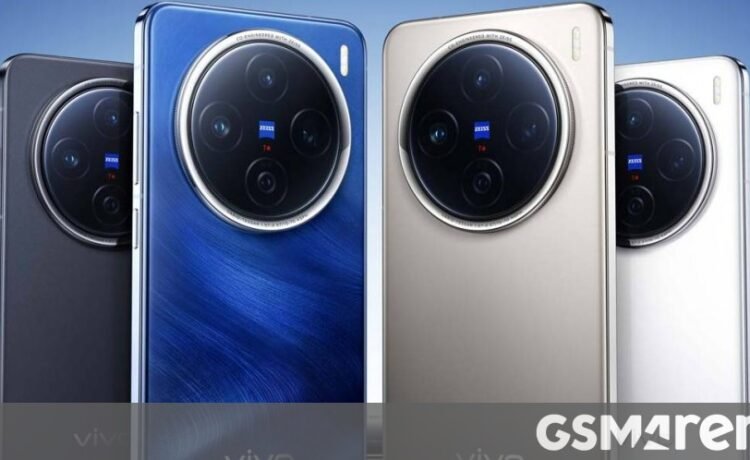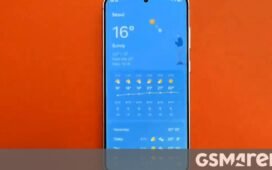While the two Pro models get most of the spotlight, the vanilla vivo X200 has some of the same cutting edge features as them. This includes a new generation of Zeiss cameras, a powerful chipset and a rugged but attractive design.
The X200 is powered by the Dimensity 9400, which has been setting performance benchmarks recently. The second generation 3nm chip with an all-big-core design was influenced by vivo in its collaboration with ARM and MediaTek. It runs its prime Cortex-X925 core at 3.626GHz and is paired with up to 16GB of RAM, which can be doubled with virtual RAM. The storage (256GB, 512GB or 1TB) can similarly be extended with vivo’s storage compression tech.

Like the large Pro, the X200 features a quad curved 6.67” display with Zeiss Natural Color, which promises industry-leading accuracy (it’s a 10-bit LTPS panel with HDR10+ support). The display uses high-frequency PWM dimming for a flicker-free experience and can reach up to 4,500 nits. The display also promises three times the longevity of other OLED panels and a lower power consumption to boot. Note that the non-Pro model is using an optical fingerprint reader.
The X200 features a 50MP 1/1.56″ Sony IMX921 sensor, which is smaller than the LYT-818 found inside the Pros, but comparable to the sensor inside the X100. The sensor sits behind an f/1.57″ Zeiss lens with T* coating.

The vivo X200 has a 50MP telephoto camera
The now-familiar Oreo-style camera island is also home to a capable 70mm f/2.57 telephoto lens (with T* coating). It doesn’t have the 200MP sensor of the two Pro models, but uses a 50MP IMX882 1/1.95″ sensor instead. Additionally, there is a 50MP 15mm ultra wide camera. For video recording, the new generation can do 4K at 120fps with 10-bit log colors.
The phone is powered by a 5,800mAh BlueVolt battery, which is an 800mAh upgrade over last year’s X100. It supports 90W wired-only charging (down from 120W last year). Despite the larger battery capacity, the X200 is actually smaller than its predecessor – 6.67” display and 7.99mm thick vs. 6.78” and 8.5mm.

Speaking of, the X100 had an IP68 rating. That is now enhanced with IP69, which is protection against hot water jets.
The new X200 family also features an offline communication capability that can send out messages up to 1km (0.6 miles) with no cell coverage. This was co-developed by vivo and MediaTek and is based on Bluetooth. It supports SOS text broadcasting and one-on-one voice and text communication. You can also share your location and more. To test it out, scientists from the Chinese Academy of Sciences went out to zones of Mount Everest, which have no network coverage.
The X200 launches with OriginOS 5. New features include Origin Island (think Dynamic Island) and a custom version of “circle to search”. For the Chinese market, vivo has created an AI model that can handle note-taking and copywriting. We will see what the company does for the international market.

Like its Pro sibling, the vivo X200 comes in Sapphire Blue, Titanium Grey, Moonlight White and Carbon Black. The first colorway, Sapphire Blue, is brand new, it has a gem-like quality to it as it shifts under different lighting conditions.
The vivo X200 goes on pre-order starting today and will be available from October 19. The base 12/256GB model starts at CNY 4,300 (this converts to $605/€555/₹51,000). Addition options include 12/512GB for CNY 4,700, 16/512GB for CNY 5,000 and a top of the line model with 16GB of RAM and 1TB storage for CNY 5,500. There’s no word on a global launch for now.






















